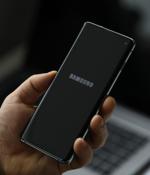Security News

After a successful pilot program in Korea, Samsung is now rolling out 'Maintenance Mode' to select Galaxy devices globally, to help users protect their sensitive data when they hand over their smartphones at service points. "With Maintenance Mode, we are giving extra reassurance that Galaxy users can keep their privacy, even if they hand their phone to someone" - Samsung.

At the Samsung Developer Conference 2022, the company also discussed its plans for personalized experiences, security and privacy. The post Samsung unveils latest features for smartphones, smart...

The suit [PDF], filed this month in a federal district court in northern California seeking class-action status, alleges Samsung unnecessarily collects PII from its customers and, as demonstrated in the aforementioned July cyber-heist, fails to adequately protect the data it collects. The theft of that customer data, which the suit claims includes personal records on more than half of Samsung's US user base, stemmed from a cyberattack against the Korean tech giant's American arm in February.

Impact of Samsung's most recent data breach unknown. Samsung announced on Sept. 2, 2022 its second data breach of 2022.

South Korean chaebol Samsung on Friday said it experienced a cybersecurity incident that resulted in the unauthorized access of some customer information, the second time this year it has reported such a breach. "In late July 2022, an unauthorized third-party acquired information from some of Samsung's U.S. systems," the company disclosed in a notice.

Electronics giant Samsung has confirmed a new data breach today after some of its U.S. systems were hacked to steal customer data. Samsung later discovered on August 4 that customer personal information was accessed and exfiltrated out of its network.

Samsung on Monday confirmed a security breach that resulted in the exposure of internal company data, including the source code related to its Galaxy smartphones. "According to our initial analysis, the breach involves some source code relating to the operation of Galaxy devices, but does not include the personal information of our consumers or employees," the electronics giant told Bloomberg.

Just days after leaking data it claims to have exfiltrated from chipmaker NVIDIA, ransomware group Lapsus$ is claiming another international company among its victims - this time releasing data purportedly stolen from Samsung Electronics. Lapsus$ had earlier announced on its Telegram channel that it had breached Samsung and offered a taste of what it had as proof, including biometric authentication information and source code from both Samsung and one of its suppliers, Qualcomm.

Samsung has acknowledged its data was stolen after the Lapsus$ extortion gang deposited what appears to be 190GB of the company's stolen internal files online. Jake Moore, Slovakian infosec firm ESET's global cyber security advisor, said: "Data breaches like this often have a price tag attached but these bad actors have just gone straight to releasing the data without a ransom note, leaving the targeted victims scrambling around trying to reduce the impact where possible."

Samsung Electronics confirmed on Monday that its network was breached and the hackers stole confidential information, including source code present in Galaxy smartphones. As first reported by BleepingComputer, the data extortion group Lapsus$ leaked at the end of last week close to 190GB of archives claiming to have been stolen from Samsung Electronics.